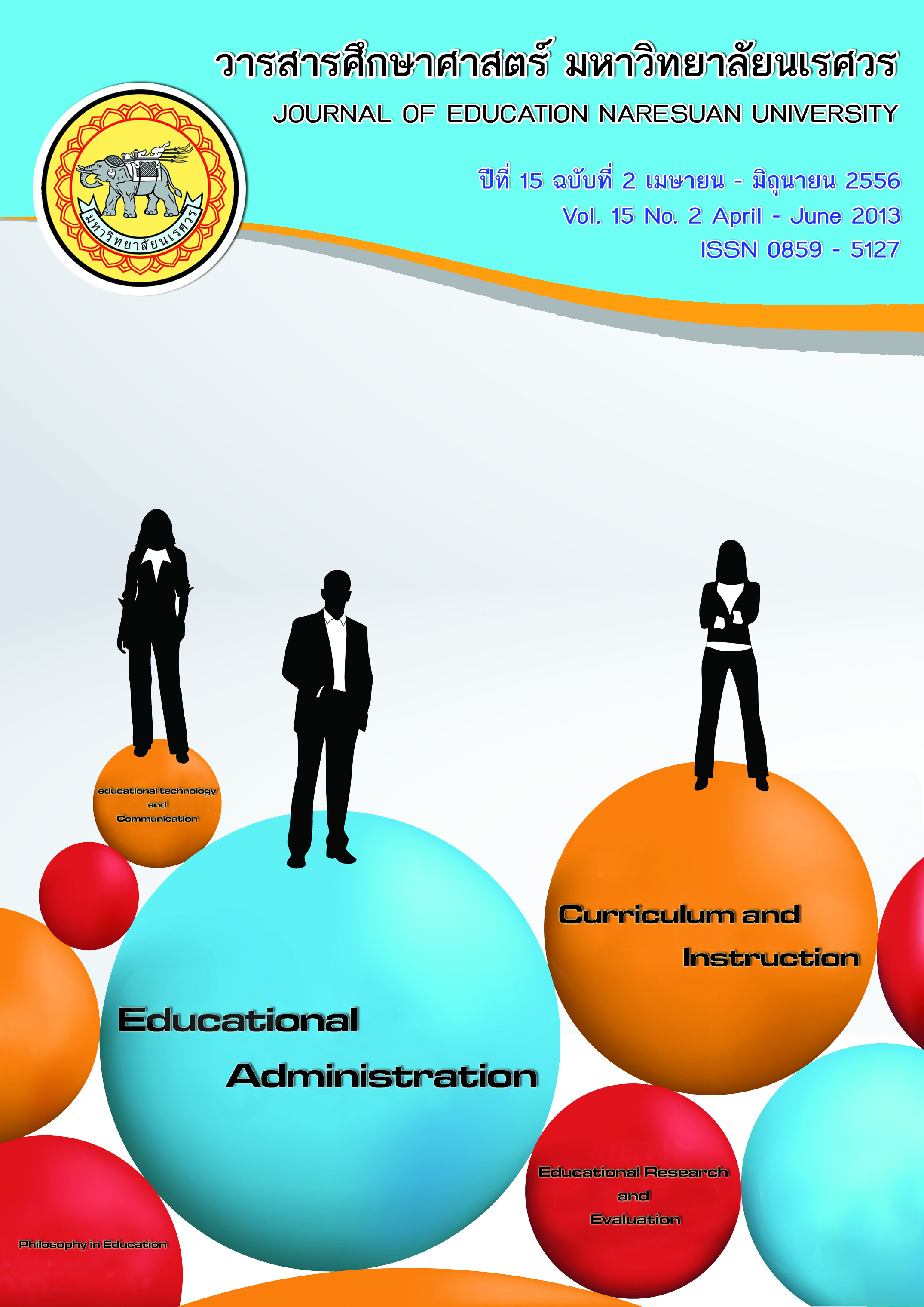การวิเคราะห์จุดเน้นหลักสูตรการศึกษาขั้นพื้นฐานของสาธารณรัฐเกาหลี
Main Article Content
Abstract
บทคัดย่อ
การวิจัยนี้มีวัตถุประสงค์ 3 ข้อคือ 1) เพื่อวิเคราะห์สภาพปัจจุบันของสังคม เศรษฐกิจ การเมือง และจุดเน้นของการพัฒนาประเทศ 2) เพื่อวิเคราะห์ระบบการศึกษา 3) เพื่อวิเคราะห์จุดเน้นของหลักสูตรการศึกษาขั้นพื้นฐานของสาธารณรัฐเกาหลี โดยใช้การวิจัยเชิงคุณภาพโดยการสังเคราะห์เอกสารและตรวจสอบความตรงเชิงเนื้อหาโดยผู้ทรงคุณวุฒิ จากสำนักงานคณะกรรมการการศึกษาขั้นพื้นฐาน ประเทศไทย ผลการศึกษา พบว่า 1) นโยบายรัฐบาลเน้นการจัดการศึกษาเพื่อสร้างทรัพยากรมนุษย์อันเป็นการเตรียมการเพื่ออนาคต โดยใช้วิทยาศาสตร์และเทคโนโลยีในฐานะเป็นฐาน 2) ใช้ระบบการศึกษาที่มีฐานกว้างและการส่งเสริมการเรียนรู้ตลอดชีวิต 3) จุดเน้นของหลักสูตรการศึกษาขั้นพื้นฐาน ให้มีความรู้ในวิชาหลัก ซึ่งบูรณาการเป็นสหวิทยาการ เพื่อให้มีทักษะที่สำคัญ เช่น ชีวิต/ทักษะอาชีพ มีทักษะการเรียนรู้และสร้างนวัตกรรมใหม่ และทักษะด้านสื่อ สารสนเทศและเทคโนโลยี
คำสำคัญ : หลักสูตรการศึกษาขั้นพื้นฐาน, สาธารณรัฐเกาหลี
Abstract
This research aimed at: 1) analyzing current social, economic and political situations, theseconsidered as the focal points of country development; 2) analyzing the educational systems and; 3)analyzing the basic education curriculums of Republic of Korea. The qualitative research, based ondocumentary analysis, and examined the contents validity by experts from the Office of the BasicEducation Commission of Thailand. The findings were as follows: 1) the government policy statementson the human resource development for the future pin point at science and technology; 2) using thebroad-based education and promoting lifelong learning; 3) the basic education curriculums have focusedon the core subjects which integrated interdisciplinary to achieve the main skills such as life andcareer skills, learning and innovative skills, and skills of media, information, and technology.
Keywords: Basic Education Curriculum, Republic Korea
Article Details
The owner of the article does not copy or violate any of its copyright. If any copyright infringement occurs or prosecution, in any case, the Editorial Board is not involved in all the rights to the owner of the article to be performed.


